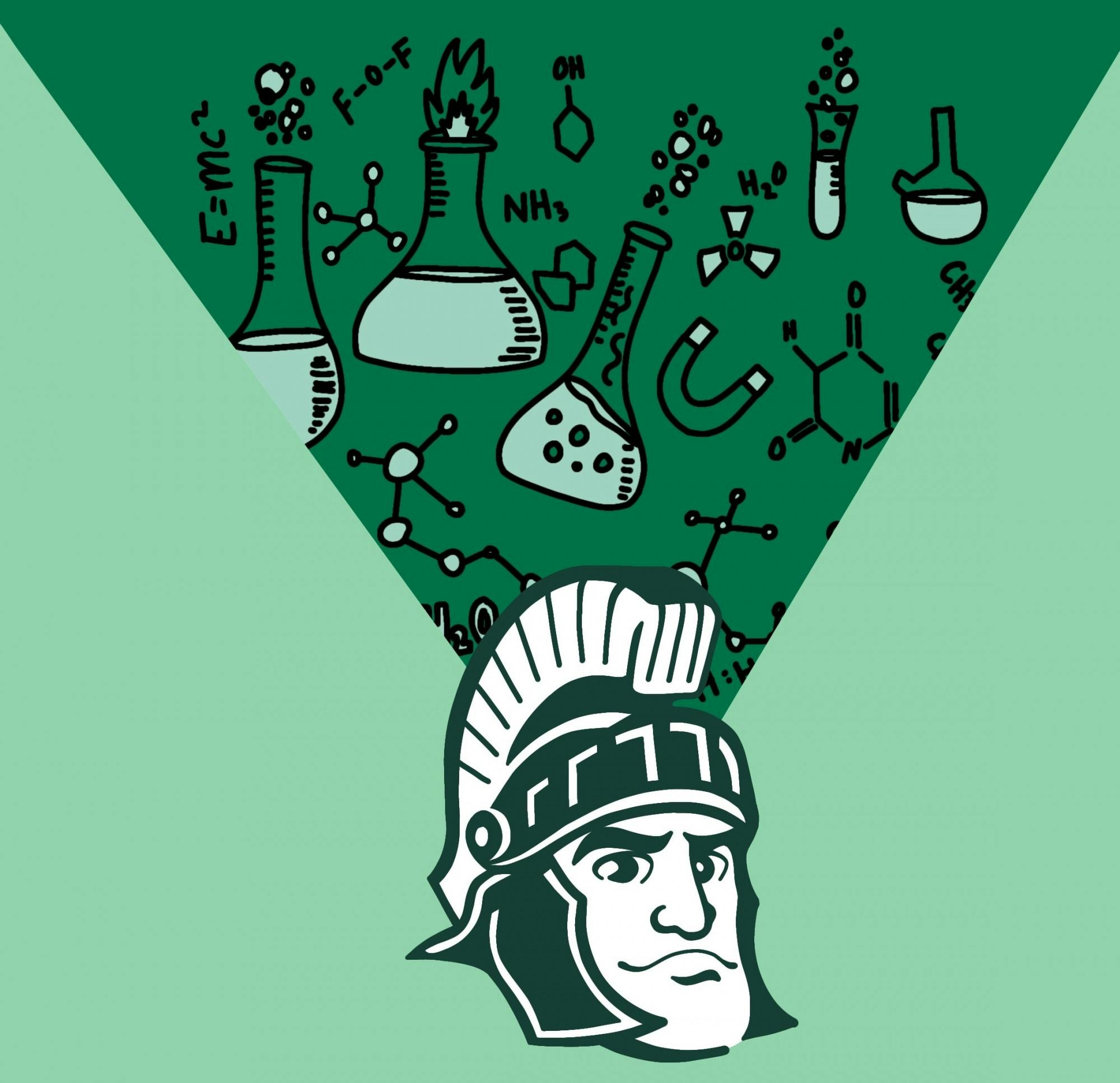Biomedical laboratory science senior Sean Crowley knew he wanted to study biology since high school. When he arrived at MSU, Crowley narrowed in on a pre-med track.
Determined to gain research experience, he seized an opportunity to join an entomology research lab.
“I was kind of nervous about whether or not I wanted to be in entomology because my major is so different,” Crowley said. “I remember (my research mentor) distinctly asking me several times, ‘Are you sure you're okay with handling the beetles and being up close?’”
Despite his nervousness, Crowley knew he could handle it. That summer, he spent his time driving through mid-Michigan conducting research on the emerald ash borer – an invasive insect that feeds on and destroys ash trees.
Crowley and his team released tiny stingless wasps called “spathius galinae,” whose larvae parasitize and kill emerald ash borer eggs. Other sections of summer research included collecting insect traps, releasing the wasps in borer-infested areas and studying the progress.
With the exception of some DNA work in the lab, this work is entirely different from Crowley’s area of study. Because of this stark difference, he said he feels more prepared for medical school.
“Entomology was so far from what I expect to do with my future and I ended up absolutely loving it,” Crowley said. “I think one of the big things that liking entomology is going to do for me is it's going to allow me to try everything with an open mindset”
Unlike Crowley, physiology and data science junior Lydia Valtadoros is doing research that is closely related to her major. Valtadoros’ lab is working to determine how to inhibit an essential protein that exists in tuberculosis bacteria. Her job is to input data found in the lab and run scripts on the data. The results can help to determine what molecule positionings best inhibit the protein in tuberculosis.
For Valtadoros, this research has been a crucial asset to her learning, as the topics covered in class and the lab research often overlap.
“One thing I love about research is that I'm learning all of these fundamental topics in my courses, but that’s all being supplemented by the research I'm doing,” Valtadoros said. “That's probably one of my favorite parts of (doing) research as an undergrad because I just really feel like it's supplementing my learning and giving me not just theoretical learning, but also the real world.”
Biochemistry and molecular biology senior Darla Martinez also said her lab work has helped her thrive in class.
“A lot of the time, it's hard to visualize and understand and conceptualize the things that they talk about (in class),” Martinez said. “It's been beneficial to me because the concepts that I'm applying in the lab have actually been talked about in my classes.”
Martinez is studying how CBD affects gene expression in hopes of determining what anti-inflammatory properties that exist in the compound can be used in medications and therapeutics.
While she spends time in the lab running reactions and doing calculations, she also prepares samples and cleans her workspace. Martinez usually works on a set of samples over the course of many days, freezing them in between.
In fact, Martinez, along with Crowley and Valtadoros, all said they struggle with the time commitment that undergraduate research requires. That, along with the steep learning curve, made joining research groups difficult for them.
“Coming in, I didn't have any background in immuno-toxicology research,” Martinez said. “I had never worked in a biology lab … or done any of this procedure. So taking in all this new information and learning very quickly was a little challenging, but it definitely made me a better researcher.”
For Valtadoros, this learning curve hit her especially hard because the first semester of her freshman year was online due to COVID-19. The lab experience helped her through that semester.
“Being able to do undergraduate research before I even came to MSU was really nice,” Valtadoros said. “I kind of had a community of people of all ages … I had a whole bunch of mentors right off the bat as a freshman that could give me advice.”
Crowley, Martinez and Valtadoros all said they feel grateful for what their research has taught them.
“Being hesitant to delve into entomology, I almost passed on something that has given me the opportunity to experience what, for years, my textbooks and teachers have been telling me that science is all about,” Crowley said. “I still remember how giddy I was on my first day, just walking around the lab, where I finally got to see what I would be doing. That feeling encourages me to look at each potential new experience with a sense of wonder and not as a source of stress.”
Support student media!
Please consider donating to The State News and help fund the future of journalism.
This story was featured in our STEM edition. Read the full issue here.
Discussion
Share and discuss “Diving deeper: STEM students reflect on undergraduate research experiences ” on social media.







